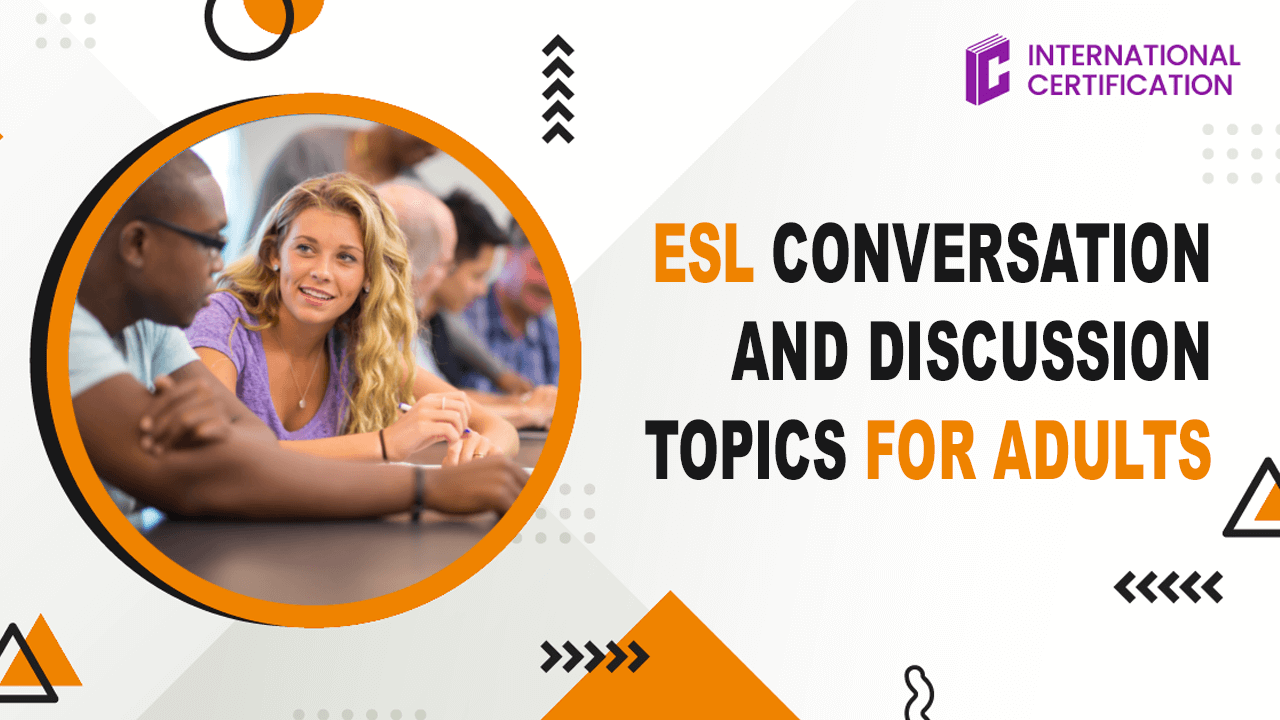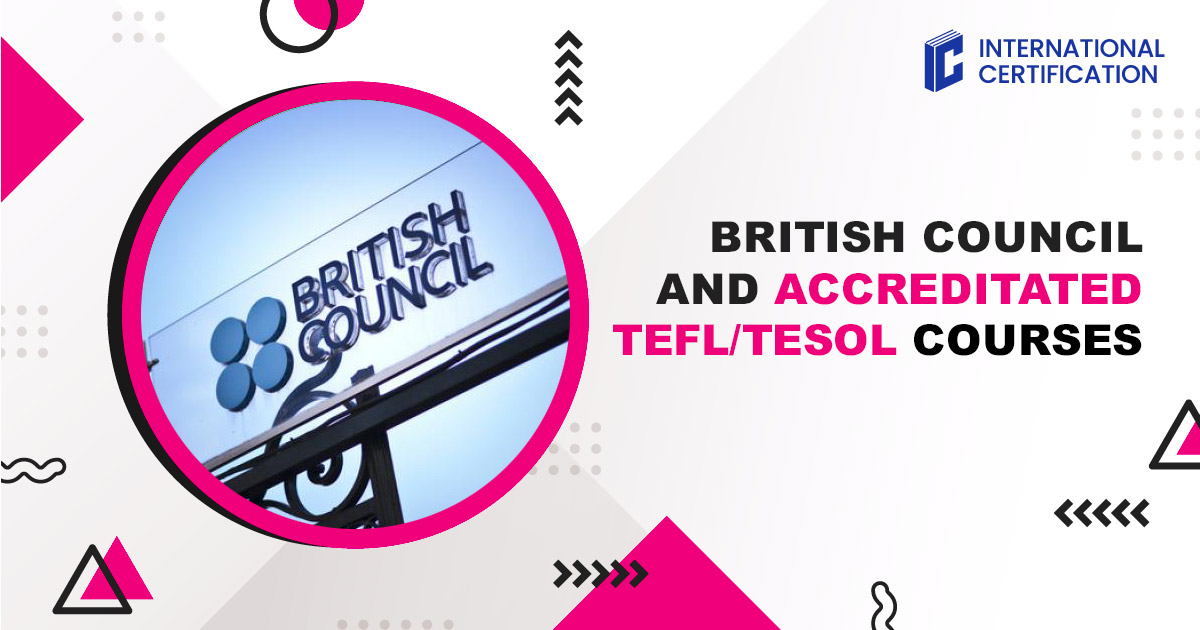And start earning money 💸 by teaching English in your own country, abroad, or online from anywhere on the planet! 🎁 Gifts and bonuses: professional support from your personal coach 🧑🏫 and job placement assistant 💼.
Table of contents
Teaching ESL to adults is more engaging and thought-provoking process than teaching kids. There are many topics that grown-ups tend to discuss. However, when it comes to speaking a foreign language, people face struggles and difficulties to express their opinion. The first thing that teachers can do is provide a class with vocabulary and conversational phrases according to the topic. Then, try to facilitate discussion and make participants comfortable to speak up.
There are typical and controversial issues that you can use in a class. Conversation statements help to overcome a fear of public speaking and develop critical thinking. We have prepared different speaking tasks for your ESL students. Use them as warm-ups or fillers between main activities. It is always better to have fresh ideas up your sleeve when you have some time left.
Video
Conversation starters for ESL adults
Doing exercises in a course book can't be effective without free practice. Eventually, the main point of learning topics is fluent use of them in speaking. That's why such role-play games and other verbal activities come in handy. They develop all necessary skills making students express their opinion through all knowledge they accumulated. Also, it is an additional way to get distracted for a few minutes and to take a break during a lesson.
If I woke up earlier
This version of the popular activity is a bit more complicated. Students should start with the phrase, "If I woke up earlier", and complete the sentence with a consequence that could happen. The next statement starts with the previous result as a reason of possible things. Everyone says 5-6 sentences to complete the chain of events.
For example, "If I woke up earlier, I wouldn't be late for work. If I weren't late for work, I would complete the project on time. If I finished the project on time, I would celebrate it with my family."
Such an exercise helps not only to tame the second conditional but also logical thinking.
Guilty pleasures
It's time to confess and admit watching some trashy TV shows and eating junk food. Let your students speak out their preferences they are ashamed of. This task will make them laugh and add humor to learning English.
Summer bucket list
People tend to plan everything, weddings, holidays, and even weekends. Depending on the season you may assign writing a bucket list. Don't forget to tell the story about the title, why it's called like that. While students add some activities to their list, they expand vocabulary in terms of traveling and hobbies.
5 things you've learned recently
Sometimes we are stuck in a rut. It seems there is nothing that can amuse us. But changes start with thoughts. Ask participants to write down all things they have accomplished recently. It might be a small step to a huge goal. It helps to be proud of yourself and value all attempts.
Zodiac signs
Everybody should check their sign in advance and read a description. Then, a person may agree or disagree with some points and add own comments in terms of personality or events.
The best decision
Another way to be proud of yourself is to recall all best moments in life. What decisions made you? Students may start with childhood to use Past Tenses in English.
30 days left
How often do people put their life off? We always promise to ourselves, "When I have more time, I will do it". Let's imagine you have only one month to live. Such sudden news causes people to think of their dreams and wishes. Make a list of must-do things with your students.
Top 10 topics to discuss with adult students
There are some typical issues that people debate. Despite the fact that questions are general and simple, answers will differ depending on the students' level. Use such topics to finish appropriate unit in a textbook or test learners. The point of it is to develop an ability to speak fluently. Such things as paraphrasing, synonyms, and antonyms may help a lot. It's better to bring up such themes with Pre-Intermediate classes or higher.
Advice
- What should parents do to bring up honest and kind children?
- What would you advise to yourself if you could go back in time?
- How to be happy
Appearance
- Don’t judge a book by its cover. What is this idiom about?
- When is appearance important?
- What three things are there in your appearance you take care of?
Books
- What is your favorite book? Why?
- Why is reading important?
- What three books are there everyone should read?
Challenges
- What challenges do you want to try?
- What challenges do people face every day?
- Why do people go through challenges?
Choices
- Would you rather be smart or talented?
- If you could choose a supernatural power, what would you choose? Why?
- If you could pick a country to live, where would you stay?
Dreaming
- Do you think dreams have meanings?
- Can dreams tell the future?
- Do animals have dreams too?
Habits
- What are your pet peeves?
- What annoying habits do your family members have?
- What are your annoying habits?
Friendship
- Is making friends easier in childhood?
- What personal traits do you value in people?
- Describe your best friend.
Motivation
- What activity do you have no motivation to do?
- What can help to raise motivation?
- What motivates you to pursue goals?
- Why do you want to speak English?
Personality
- Describe your personality.
- What type of people do you get on well with?
- What personality trait would you like to develop? Why?
💡 Unlock the secrets to doubling your teaching income with our exclusive checklist! 🎯 This checklist is designed for English teachers who want to 📈 attract more students and 🔥 keep them engaged for the long term.
Questions for ESL adult students
Exam preparation seems to be boring when it's working on sample papers. There are many debatable issues you can conduct as problem-solving projects. It's better to pair students up and observe their answers. When it comes to individual classes, turn to such questions to make students brush up on vocabulary. It's hard to come up with ideas what to say right away, so provide students with proper input on it.
Environment
- Are you environmentally friendly? What do you do to take care of the planet?
- What danger do people pose to the global environment?
- What are five things individuals can do to help the environment?
Society
- Do you give money to homeless people? Do you think people should give money to homeless people?
- Should rich people and corporations be forced to give to charity?
- Do you think it is better to give time or money?
- Does culture influence your personality? How?
- Are bad people bad because of circumstances or choices? What about good people?
- Do you care about others’ opinion about you?
Fashion
- Are you addicted to fashion?
- How often do you buy new items of clothes?
- Do you read fashion magazines?
- What do you pay attention to when you meet someone for the first time?
Travelling
Agree or disagree with the statements.
- I'm really scared to travel alone.
- Travelling is not only my hobby but profession as well.
- Only a few people have opportunities to travel.
- I'm always on the road.
- People should travel more in the future.
- I can't stand travelling with other people.
- Travelling has broadened my mind.
Education
- How many educational establishments have you attended?
- What was your favorite subject? Why?
- Were you ever called a teacher's pet?
- What subjects should be added or dropped?
- Who is mainly responsible for a child's academic success-parents or teachers?
- Why do people do to university?
- What makes a good student?
Technology
- Is life without computers and the internet possible these days? Why?
- Do you think the quality of life in general is better now than it used to be?
- Why do many people still use traditional forms of communication?
- Do you think robots will cause unemployment in the future or make more work?
Family
- What is the best environment to raise a family in?
- What was the worst thing you did as a child? Did you get caught?
- Is there anything funny or different about your family?
- Due to population growth and environmental problems, should families have fewer kids?
- In your country, are mothers allowed maternity leave (from work)? What about paternity leave for fathers?
🚀 More students, 💰 higher income, 🌍 complete freedom! ✅ 112 verified platforms with top rates ⏳ Flexible schedule – work whenever and as much as you want 🎯 Simple requirements – start earning right away 💎 Boost your career and income by teaching students worldwide!
Topics for ESL adult beginners
Teaching novices might be challenging because of many reasons. They aren't ready to answer questions with ease yet, because of lack of knowledge. However, it doesn't matter that such learning process comes to memorizing new words and drilling grammar. Students must get used to speaking without preparation. Obviously, it is better to have at the end of a proper unit. Let people know that they don't have to translate all words, getting the main point of a question is enough.
Hobbies
- What are your hobbies?
- Why do you like them? How much time do you spend on them?
- Why do people take up new activities?
- What were your hobbies when you were a child?
- What would you like to take up in the future?
Time
- How much free time in a week do you have?
- Do you want to have more? Why?
- What do you feel when you don't have enough time to rest?
Music
- What music do you like?
- What music is popular in your country now?
- What music did you love when you were a child?
Work
- What do you do?
- Do you like your job? Why?
- What is your dream job?
- How to get a job?
Food
- What is your favorite food?
- Do you prefer cooking at home or eating out?
- What food you dislike?
- What do you usually have for breakfast, lunch, dinner?
Animals
- Do you have pets?
- What pets would you like to have?
- Did you have a pet when you were a kid?
- What are you favorite wild animals?
- What animal are you afraid of?
Money
- How much money do you need a month to be happy?
- What would you spend them on?
- How well do you manage your money?
- What are some good ways to make money?
- How often do you save money?
Plans
- Do you plan things?
- What are your plans for the summer?
- Do you have back-up plans?
- What do you plan to do with your English?
Sport
- What sports are you good/bad at?
- How often do you exercise?
- What physical activity is popular in your motherland?
Learning
- Do you love learning new things? How often do you do that?
- What things are you good/hopeless at learning?
- What do you want to learn?
- What are you learning now?
Games
- What games do you enjoy?
- Do you play board games?
- What are your favorite games to play?
- What games did you play as a kid?
Questions to revise English grammar
Taming grammar tenses isn't supposed to be repetitive and dull. As soon as a class finishes typical exercises, make them use it in spontaneous speech. Usually, the most challenging topics are conditionals and Present Perfect. As we know, it takes time to tackle it. What you can do as a facilitator is create an appropriate language environment.
Have you ever:
- traveled alone?
- read a book that changed your life?
- played board games?
- been rude to strangers?
- gossiped?
- danced in the street?
- forgotten someone's name?
If you:
- had one wish, what would it be?
- were a millionaire, what would you buy?
- could be famous for one day, which celebrity would you become?
- could travel everywhere, where would you go?
- had a chance to change only one thing in your personality or appearance, what would it be?
- could change your past, would you do it?
- were a president of your country, what would you do first?
What would you do if:
- your child failed his English test?
- your 13-year old child got a tattoo on the back of a tarantula?
- your child didn't eat vegetables at dinner?
- your 12-year old daughter said she was dating a high school student?
- your child kept screaming because you didn't buy him candy in the grocery store?
Would you rather:
- have a pet snake or hamster?
- be happy or wealthy?
- be friendly or popular?
- save or spend money?
- be invisible or superfast?
- change your appearance or personality?
- help animals or people?
- work in a company or have a small business?
- read a book or watch a movie?
- believe news in a newspaper or on social media?
Conclusion
What makes people learn English? There are many possible answers, however, the most common is freedom. There is a bunch of topics to discuss with no problem in a native language. That's why, it is important to guide such curiosity and interest to speaking English. Such captivating questions will not only catch students attention but also save you when you lack of ideas.
Some extra options are a must-have for ESL teachers to engage adult students. Making lesson plans must take into account possible unexpected events. If you still hesitate to choose exercises for your class, get practice and enroll in online TEFL/TESOL course at a 50% discount.
Such a course will make you feel comfortable and confident at making lesson plans and explaining new topics in English. That's a way to develop your professional skills working with a native-speaker trainer.
We hope you found this article instructive and valuable. If you have relevant questions, leave them in the comment section below.
Terms used:
ESL, TEFL, TESOL

York Fern
An English instructor with 12+ years of experience. I work for an online school and travel the world, teaching students from various countries, leveraging my TEFL/TESOL certification. Seeing the world's oceans, mountains, and cities with my own eyes has given me a profound appreciation for the importance of quality education and international communication.
and start earning by teaching English in your country, abroad, or online from anywhere in the world! Order the course with a 50% discount 💸 and receive as a gift the support of a personal coach 👨🏫 and job placement assistant! 🎁🚀 Hurry, limited spots available! 🏃♂️💨
💡 Unlock the secrets to doubling your teaching income with our exclusive checklist! 🎯 This checklist is designed for English teachers who want to 📈 attract more students and 🔥 keep them engaged for the long term.
🚀 More students, 💰 higher income, 🌍 complete freedom! ✅ 112 verified platforms with top rates ⏳ Flexible schedule – work whenever and as much as you want 🎯 Simple requirements – start earning right away 💎 Boost your career and income by teaching students worldwide!
choose us?




